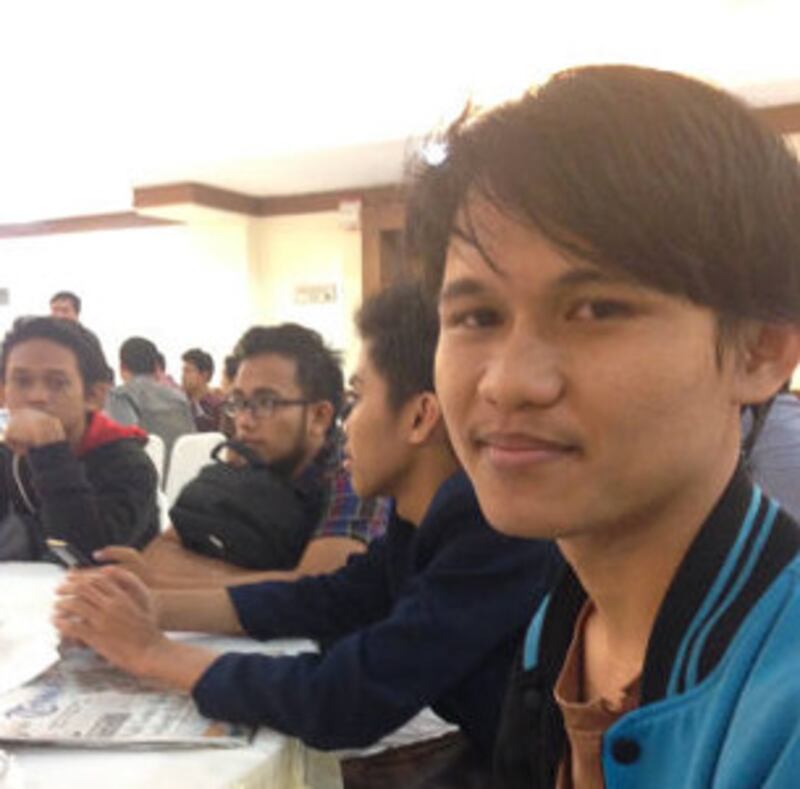Several years ago, Ahmad Rosid nearly traveled to Pakistan where he planned to join a militant group that was fighting the U.S.-led coalition in neighboring Afghanistan.
After graduating from a vocational high school, the young Indonesian drifted toward radicalism and was nearly hooked by jihadist doctrine. But he canceled the trip abroad, in the end, and has since renounced that lifestyle, Ahmad told BenarNews.
At 21, he has matured into the type of young person that the Indonesian government is looking to enlist in countering a threat in cyberspace from the Islamic State (IS) and other extremist groups that, according to officials, aggressively try to recruit Indonesians for the jihadist cause via Twitter, Facebook and other social media.
Indonesia’s National Counterterrorism Agency (BNPT) now is looking to young people like Ahmad, who are skilled and trained in computers, to use those skills in the fight against online propaganda disseminated by IS and like-minded groups, as well as to hack into hostile websites if necessary.
In the city of Yogyakarta on Thursday, the BNPT hosted a workshop, titled “Peace in Cyberspace,” which drew 300 participants – mostly young computer geeks and hackers – and whose aim was to encourage them to join it in the battle on the internet against IS.
According to Onno Purbo, an information technology (IT) expert, because Indonesia is targeted by “millions of cyber attacks” every day, the government needs the help of skilled youths in countering that threat.
“We have to learn techniques to attack in order to defend ourselves. So for me, seeing these young people learning such knowledge is like a self-defense,” Onno told BenarNews.
The internet's pull
Compared with other social media, YouTube generates a heavy volume of traffic among radical groups because of its audiovisual power, said Nukman Luthfie, a social media expert.
“YouTube is used very often to spread ISIS teachings. Visual dissemination of a belief has the most impact,” Nukman told BenarNews, using another acronym for the Islamic State (IS).
And, according to Agus Surya Bakti, the BNPT’s deputy head of Prevention, Protection and De-radicalization programs, members of the young generation are especially vulnerable to online propaganda and recruitment.
Nowadays, he said, youngsters tend to learn about religion from the internet rather than from a trained teacher or scholar who has a deep understanding of Islam.
“We have ustads, or religious teachers, in the villages who are out of a job now because their students have switched to learn from the internet,” Agus told BenarNews.
‘It was getting serious’

Ahmad was at Thursday’s workshop.
It was part of a three-day seminar organized by the BNPT that ended Friday and drew more than 1,000 people aged 19 to 24. The seminar aimed to engage young Indonesians in a conversation about how they could contribute to preventing Islamic radicalism from spreading in their country, organizers said.
In 2012, Ahmad (pictured) graduated from a school in Bandar Lampung , a city in southern Sumatra where he had taken computer studies. He then earned a partial scholarship to attend a state university in Lampung province but dropped the plan to go to college, he said, because his parents couldn’t afford to pay for the outstanding fees.
During that idle time in his life, Ahmad said a friend invited him to come to a Quran recital group in Bandar Lampung.
“I joined the group because I wanted to learn about how to read the Quran, but later on I started to learn more about the group’s values. It was getting serious, I was told about what constitutes ‘jihad’ and I watched videos about jihad on YouTube,” Ahmad recalled.
The more time that he spent time with the group, the more he became energized about wanting to undertake ‘jihad’ against the “infidels,” he told BenarNews. That’s around when he began thinking about going to Pakistan to take up arms against forces with the international coalition, he said.
That was late 2011, but when his parents found out about his plan, they uprooted and moved the family to West Sumatra province. Last year, Ahmad recalled, friends from the old group in Bandar Lampung tried to persuade him to rejoin the group, but he cuts ties with them when they urged him to take up the call for militant jihad, Ahmad said.
He has since joined a different kind of group, a band of young IT enthusiasts who call themselves Pondok Programmer.
“I was lucky to have found this group,” Ahmad said.
